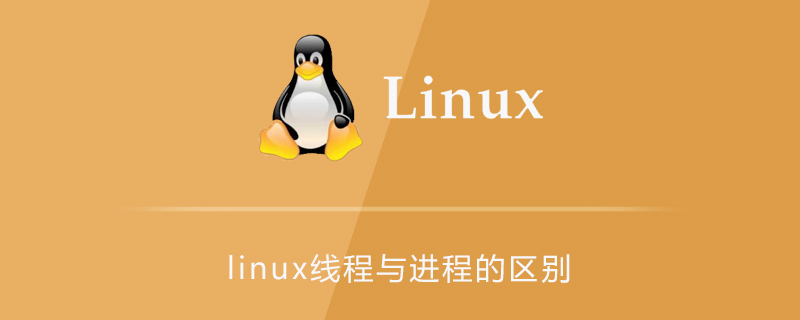Home >Operation and Maintenance >Linux Operation and Maintenance >The difference between linux threads and processes
The difference between linux threads and processes
- 王林Original
- 2019-11-02 17:10:126390browse

1. The concepts of threads and processes
Process: It is a running program and the smallest unit for system allocation of resources.
Thread: It is a path of execution in the process and the smallest unit of system scheduling.
2. The relationship between threads and processes
1. A process can have multiple threads, and a thread can only belong to one process (subordinate).
2. All threads under the same process share all resources (resources) under the process.
3. What actually runs on the processor is a thread rather than a process. A thread is an execution unit within the process and a schedulable entity (running entity) within the process.
3. The difference between threads and processes
Scheduling: Thread is the basic unit of scheduling, and process is the basic unit of resource ownership.
Concurrency: Concurrent execution can occur between processes and threads.
Resources: A process is an independent unit that owns resources. Threads do not own system resources, but they can access resources belonging to the process. Threads have their own stack space and program counter.
System overhead: Process overhead is greater than thread overhead, and thread context switching is much faster than inter-process context switching.
For multiple threads in each process, static data segment (including global variables, static objects), Heap (heap, space allocated by malloc and new) are shared. Each thread has its own independent Stack to store local variables.
Recommended tutorial: linux tutorial
The above is the detailed content of The difference between linux threads and processes. For more information, please follow other related articles on the PHP Chinese website!

